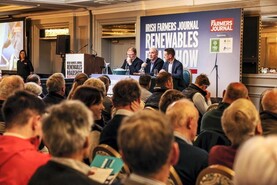Europe is prepared for this winter, according to EU energy ministers who met in Brussels on Friday morning to discuss proposals to alleviate the bloc's deepening energy crisis.
Despite struggling to find consensus on the European Commission’s five proposals which were issued earlier in the week, ministers did express their preferences on the different policy options.
It is understood that ministers have tasked the Commission to act on a number of measures, including capping the revenues of electricity producers that face low production costs, a possible price cap on gas, measures for a co-ordinated electricity demand reduction across the EU and measures that would help to solve the issue of decreased liquidity in the sector.
While no decision has formally been agreed yet, the Commission is set to intensify negotiations with member states, with the aim of implementing the measures within a short time frame.
Another energy meeting will likely be planned before the end of the month.
Prepared for winter
Despite recent developments, and in particular the cut of Russian gas flows via Nordstream I, Europe is prepared for this winter, the statement reads.
The EU’s underground gas reserves has now been filled by 82.5% of their capacity, well ahead of the 1 November deadline set in the recent gas storage regulations.
Irish security
Commenting on Ireland's energy situation, Minister for the Environment Eamon Ryan maintains that Ireland is in a strong position in terms of gas supply compared with other EU countries.
According to his Department, the continued supply of natural gas to Ireland has not, to date, been reduced or interrupted as a result of the war in Ukraine.
Seventy-five percent of Ireland’s gas supply comes from the UK, which has both an indigenous and diversified supply of gas.
While this remains a strategic advantage compared with other European countries, it has not shielded Ireland from steep price increases.
Electricity
However, there are challenges to the security of electricity supplies in Ireland, the department has stated.
According to a statement seen by the Irish Farmers Journal, concerns over supply risks have arisen largely due to the non-delivery of previously contracted capacity, increasing electricity demand and the increasing unreliability of some existing plants.
The statement made no reference to the loss of capacity due to the closing of peat-powered electricity plants, namely Lanesborough, Co Longford, and Shannonbridge, Co Offaly.
Oil
The short- to medium-term oil supply outlook has stabilised, according to the department.
National Oil Reserves Agency (NORA) currently holds approximately 85 days of oil stocks, the overwhelming majority of which is in the form of physical product, with approximately 85% stored on the island of Ireland.






 This is a subscriber-only article
This is a subscriber-only article











SHARING OPTIONS: